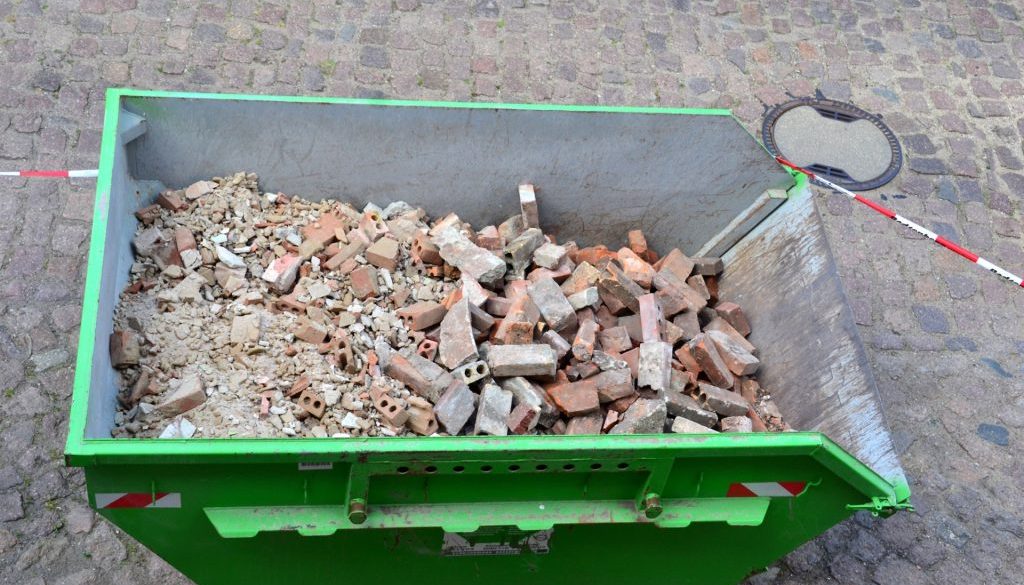Waste segregation is an essential practice in construction site waste management, impacting the efficiency, cost-effectiveness, and sustainability of construction projects. As a family-run skip hire and aggregate company servicing Staffordshire, we understand the critical role waste segregation plays in construction waste disposal.
An effective waste segregation plan enables companies to minimise their environmental footprint, achieve regulatory compliance, and unlock valuable cost savings through recycling and repurposing materials.
Construction site waste segregation involves systematically separating and sorting waste materials into distinct categories based on their composition, type, and potential for recycling or reuse. Proper waste segregation enables more efficient recycling and recovery processes, contributing to a more circular economy, reducing the demand for natural resources, and lowering the overall environmental impact of construction.
In addition to environmental benefits, effective waste segregation can also offer economic advantages by reducing waste disposal costs and transforming waste materials back into valuable resources.
In this blog, we will provide a comprehensive guide on construction site waste segregation, discussing its importance, benefits, and practical tips for implementing efficient segregation practices on your project site. We will also explore the various types of waste materials typically encountered in construction projects and outline steps to ensure compliance with waste management regulations.
By understanding the principles of construction site waste segregation and implementing effective practices, your business can gain both environmental and financial rewards while fostering a cleaner and more sustainable construction industry.
Understanding the Importance of Waste Segregation
Waste segregation plays a vital role in managing the environmental impact of construction sites. By systematically separating waste materials, businesses can increase the efficiency of recycling and repurposing processes, reducing their reliance on natural resources and minimising their carbon footprint. The primary benefits of waste segregation in construction include:
- Enhanced Recycling Rates: Segregating recyclable materials from non-recyclable waste enables more efficient recovery and recycling processes.
- Cost Savings: Streamlining waste segregation can reduce disposal costs and transform waste materials into valuable resources.
- Regulatory Compliance: Following waste segregation best practices ensures that your construction project adheres to relevant environmental and waste management regulations.
- Reduced Environmental Impact: Effective waste segregation contributes to a more sustainable construction industry by minimising landfill waste and promoting a circular economy.
Common Types of Construction Site Waste
To implement effective waste segregation practices, it is crucial to understand the various types of waste materials generated during construction projects. Common types of construction site waste include:
- Inert Waste: This category includes materials such as bricks, concrete, and soil, which can be recycled or reused in future projects.
- Non-Hazardous Waste: Non-hazardous waste encompasses materials like wood, cardboard, and plastic, which can be recycled or repurposed depending on their condition.
- Hazardous Waste: Hazardous waste (e.g., asbestos, contaminated soil, spent solvents) requires special handling and disposal procedures to prevent harm to human health or the environment.
- Mixed Waste: This category consists of waste materials that have not been segregated and may require sorting and separation before recycling or disposal.
Practical Tips for Implementing Waste Segregation on Construction Sites
Efficient waste segregation practices can streamline the waste management process and yield significant environmental and financial benefits. Consider the following tips for implementing effective waste segregation on your construction site:
- Designate Waste Collection Areas: Set up clearly marked waste collection points for different waste types (e.g., inert, non-hazardous, hazardous, mixed) to facilitate easy segregation and reduce contamination.
- Provide Appropriate Containers: Ensure that each waste collection area has suitable containers for the specific waste type to prevent mixing and simplify separation.
- Train and Educate Staff: Equip your team with the knowledge and tools necessary for proper waste segregation, and emphasise the importance of adhering to waste management procedures.
- Monitor and Assess Waste Management Practices: Regularly review your waste segregation processes and adapt them as needed, encouraging staff to report any issues or suggest improvements.
Ensuring Compliance with Waste Management Regulations
Complying with waste management regulations is essential to avoid the risk of fines or legal action while promoting a more sustainable construction industry. Keep the following guidelines in mind to ensure regulatory compliance:
- Familiarise Yourself with Relevant Legislation: Stay informed about environmental and waste management regulations applicable to your construction project, including local, regional, and national guidelines.
- Implement a Waste Management Plan: Develop a comprehensive waste management plan that outlines your waste segregation strategies and disposal procedures.
- Hire Licensed Waste Carriers: Partner with licensed waste carriers and disposal facilities to ensure responsible handling, transportation, and disposal of all waste types according to regulations.
- Maintain Accurate Records: Keep thorough and up-to-date documentation of your waste management processes, including waste manifests and records of waste disposal.
Conclusion
Effective waste segregation plays an essential role in the sustainable and responsible management of construction site waste, offering both environmental and financial benefits. By understanding the different types of waste materials, implementing practical segregation practices, and ensuring regulatory compliance, your construction project can reduce its environmental impact, unlock valuable cost savings, and contribute to a more sustainable future.
If you need assistance with waste segregation and sustainable waste management solutions for your construction project, our experienced team at Enviro Skip Hire is ready to help. Let’s work together to manage construction site waste responsibly and efficiently, fostering a cleaner and more sustainable construction industry for all. Contact us if you’re looking for a Whitchurch skip hire!




